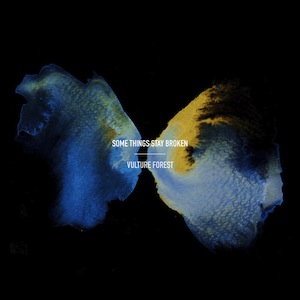Label: Outside in Music, 2019
Personnel - Remy Le Boeuf: alto saxophone; Walter Smith III: tenor saxophone; Aaron Parks: piano, Fender Rhodes; Charles Altura: electric guitar; Matt Brewer: double bass; Peter Kronreif: drums.
Californian saxophonist/composer Remy Le Boeuf is searching for his own individuality on Light As a Word, his debut album as a bandleader after many years playing and recording with his identical twin brother, pianist Pascal Le Boeuf. As Le Boeuf Brothers, they released four albums and recorded with artists such as Linda Oh, Ambrose Akinmusire, Clarence Penn, and Marcus Strickland.
For this outing, which comprises 12 originals, the alto saxophonist summoned fantastic musicians. Tenorist Walter Smith III pairs with him in the frontline, while pianist Aaron Parks, bassist Matt Brewer, and Austrian-born drummer Peter Kronreif configure a rhythm section capable of inventiveness. Despite the great band, and the appearance of talented guitarist Charles Altura on a couple of tunes, the material only sporadically managed to catch on.
“Bloom” is a solo saxophone effort that works almost like a prelude to “Full Circle”, a breezy, medium-tempo post-bop piece with a gentle posture. The saxophonists step forward, using their gifts as soloists and speaking in an enveloping contemporary language.
I have to point out “The Melancholy Architecture of Storms” as a highlight. The gradual densification of texture and the reedists’ combined forces take the initial tranquility further. Although presented here as an instrumental, this particular tune had poet Sara Pickle Hughes writing lyrics for it, in the occasion of Le Boeuf’s Park-In Residency program.
Both “Imperfect Paradise” and the introspective “Union” are far from any heights of lyrical surprise. Still, the former features both Altura and Parks in competent improvisations as well as Kronreif’s cool spontaneity behind the drum kit. They nearly elevate the song to satisfactory levels.
I sensed some reluctance from the band to risk more, and the result reflects that sort of apathy. If “Mirrors in Your Eyes” breathes positive, soulful vibes, “Qoo” and “Traptop” are set to autopilot mode, oscillating between gracefulness and stiffness. Not even the warm bolero tide offered by the title cut managed to melt all those persistent icy layers.
Light As a Word isn’t quite an embarrassment, but, strangely, there was something here that simply didn’t let the fire burn.
Grade C+
Favorite Tracks:
02 - Full Circle ► 03 - The Melancholy Architecture of Storms ► 07 - Mirrors in Your Eyes








































